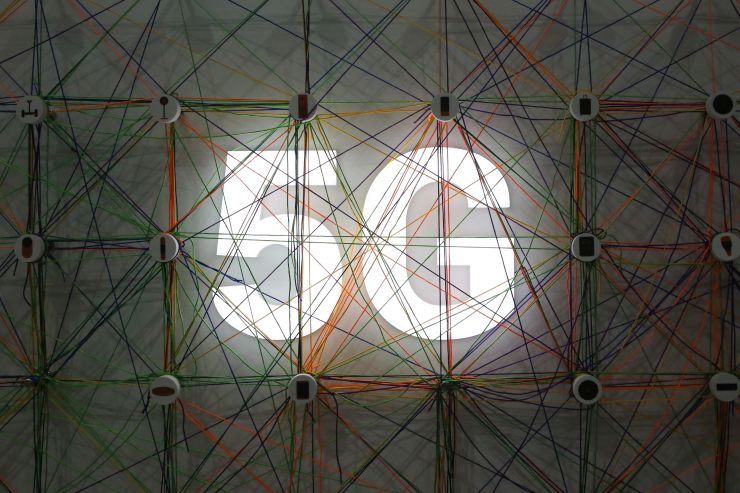This article should be easy to whip up pretty fast. The message is kind of obvious.
There have been the Banking and Savings & Loans Sector Clean-ups. I haven’t disliked them. I wrote back in May that “I like our [banks] bigger. My preference is for our Savings and Loans taking the place of these smaller banks. I like our microfinances less capable of taking advantage of market women and susu partakers and the like”. So these are not really what prompted this piece on SMEs in Ghana. The crackdown on microfinances didn’t even raise my antennas back then because it was about time that happened.
Everything is Changing
SMEs in Ghana are less robust and more vulnerable to fluctuations in the national economy than big companies. This is the time SMEs need to tactically shift a few gears around and evolve with the ongoing changes or risk the eventual death of their businesses. The “Economy Clean-up” has seen a complete and ongoing reconstruction of how we interact with our financial institutions and how they interact with us. It has seen the rise of FinTechs and National Digitisation efforts. The rules are changing everywhere. Everything is changing.
It’s time SME’s evolve or die. Like the popular meme says: Improvise, Adapt, Overcome! I’m just adding the unspoken but apparent “OR DIE!”.
These clean-ups have been about defining “bottlenecks”.
A bottleneck, in general terms, is simply a situation that limits a process or activity from progressing. So if you prepare gari soakings with gari, sugar and water while aiming for a certain gari:sugar:water ratio, then whichever of these ingredients that finishes first as you aim to maintain this ratio is your bottleneck. The bottleneck ingredient limits the making of the kind of gari soakings you like.
The minimum capital for banks was initially pegged at GH¢230 million. It was later scaled up to GH¢400 million instead. That’s the tightening of a bottleneck, to limit the activities of certain banks from progressing, and for good reason.
Loosening of Bottlenecks
Think of a sieve, with adjustable holes. If you tighten the holes, fewer grains will fall through. If you loosen it, the sieving process progresses faster. When the Vice President announced the reduction of Import Duties by 50% and that of vehicles by 30%, he was loosening the bottleneck. He wanted to increase the import activities of the Ports and Harbours, and for good reason.
And we are going to see these tightening and losing of bottlenecks all over the different areas of the vast economy, like I realised with the passing of the New Companies Act. This act loosened a couple of bottlenecks, like previously sticking with the category of businesses stated in initial filing. It also tightened others, like what qualifies one to be a company secretary.
Defining an SME.
I don’t think there’s a definition of a Small to Medium Enterprise (SME) that is accepted worldwide. The definitions I were able to dig up clearly show that it depends on who is defining it and from where they are defining it. If a person from one sector defined SMEs today, he would define it differently if he changed sectors.
SMEs are usually characterised by the number employees, their capital, and sales turnover. SME classification by size is a very good way to go about it because everyone can utilize this easy and simple method, but each sector would still come to different results.
A company of one size would be considered small in a sector where the market is huge with many competitors. This same company would be considered as big in a sector with generally smaller companies or fewer players. So SME definition is a matter of perspective. Government Agencies usually prefer classification through number of employees though.
The role of SMEs in national development.
The creation of new companies is a significant indicator of a good, economic atmosphere that enables enterprising activities. The majority of big companies started out as SMEs and the number of SMEs far outnumber any others. SME’s also employ a lot more people, yet their full potential remains remarkably untapped for many reasons.
Difficulties facing SMEs in Ghana.
Small to Medium Enterprises (SMEs) all over the world have similar characteristics and so face similar obstacles. Cultural, societal, legal and other institutional differences change the understanding and the approach to fixing these issues in each country.
One previously stated problem facing SMEs in Ghana is the increased vulnerability to economic fluctuations that typically would not affect the larger companies. Uncertainty with present situations because of the core “hustling” nature of SMEs also stifles most of the long-term planning and strategic innovation.
SMEs are unable to cushion against even the regular risks that come with growth and expansion. Insurance covers and the like seem like luxury when your operating capital can all be sucked up with one good order from one good client.
The most common SME issues have to do with inadequate access to funds, taxation, problems with workforce, lack of coordination and inefficient internal communication mechanisms or irregular information exchange.
What can be done for SMEs in Ghana
All I want for Christmas is a PUBLIC CREDIT RATING SYSTEM.
The creation of credit-rating agencies will greatly propel SMEs that are building credibility and only need a good chance. It’s a self-explicable concept. My wife is obsessed with her credit score in the UK because of all the goodies that good credit brings. A ratings system like that which encompasses SMEs could be the springboard that shoots forward the capable SMEs earlier than they would have been. Ghana wins.
Could asset-based financing be the answer? It’s not new. It tends to get messy but without a credit rating, without a reputation or long record and most times without even audited books, what can be done?
Some banks are making strides in aiding SMEs in Ghana reach their full potential… and also of course calling dibs on the potential today-thousandnaire-tomorrow-millionaire SME owners out there.
Barclays I know has some attractive SME programs out there that aids many business owners. Recently I discovered Zenith bank is also very responsive to the peculiar ecosystem that is ‘running an SME’. There are others. Give them a ring.
So SMEs, you’re not alone! Help is out there.
Demonstrate your potential and demand to be noticed. This economy now has redefined bottlenecks. Do not be the bad grain. Restructure your thinking and your actions to go with what has been happening now, or risk being unadaptable with the current economic settings. Facilities like invoice discounting are easy to understand, and easy to setup if you have the right parts… so get the right parts! Know what’s new and what’s faded; do your research. Utilise the free consultations our institutions offer. You are not alone! Help is out there. Improvise, Adapt, Overcome, EVOLVE!
EVOLVE OR DIE… but do well to live. ☻
******************
Hit me up on social media and let’s keep the conversation going! I read all the feedback you send me on LinkedIn, Twitter, Instagram and Facebook. Have a lovely week

Also, feel free to throw at me topics you’d like to read on the Macroeconomic Bulletin.

Maxwell Ampong
Maxwell Ampong is the Group CEO of Maxwell Investments Group, an International Trade and Business Development Solutions Provider. He is also the Property Investment Consultant for Coldwell Banker Commercial Real Estate Ghana. He works with a team of motivated professionals, governed by industry experts with experience spanning over a century. His writings are about trending and relevant economic topics, and general perspective pieces. LinkedIn:/in/thisisthemax Instagram:@thisisthemax Twitter:@thisisthemax Facebook:@thisisthemax Website: www.maxwellinvestmentsgroup.com Email: maxwell@maxwellinvestmentsgroup.com Mobile: 0249993319










